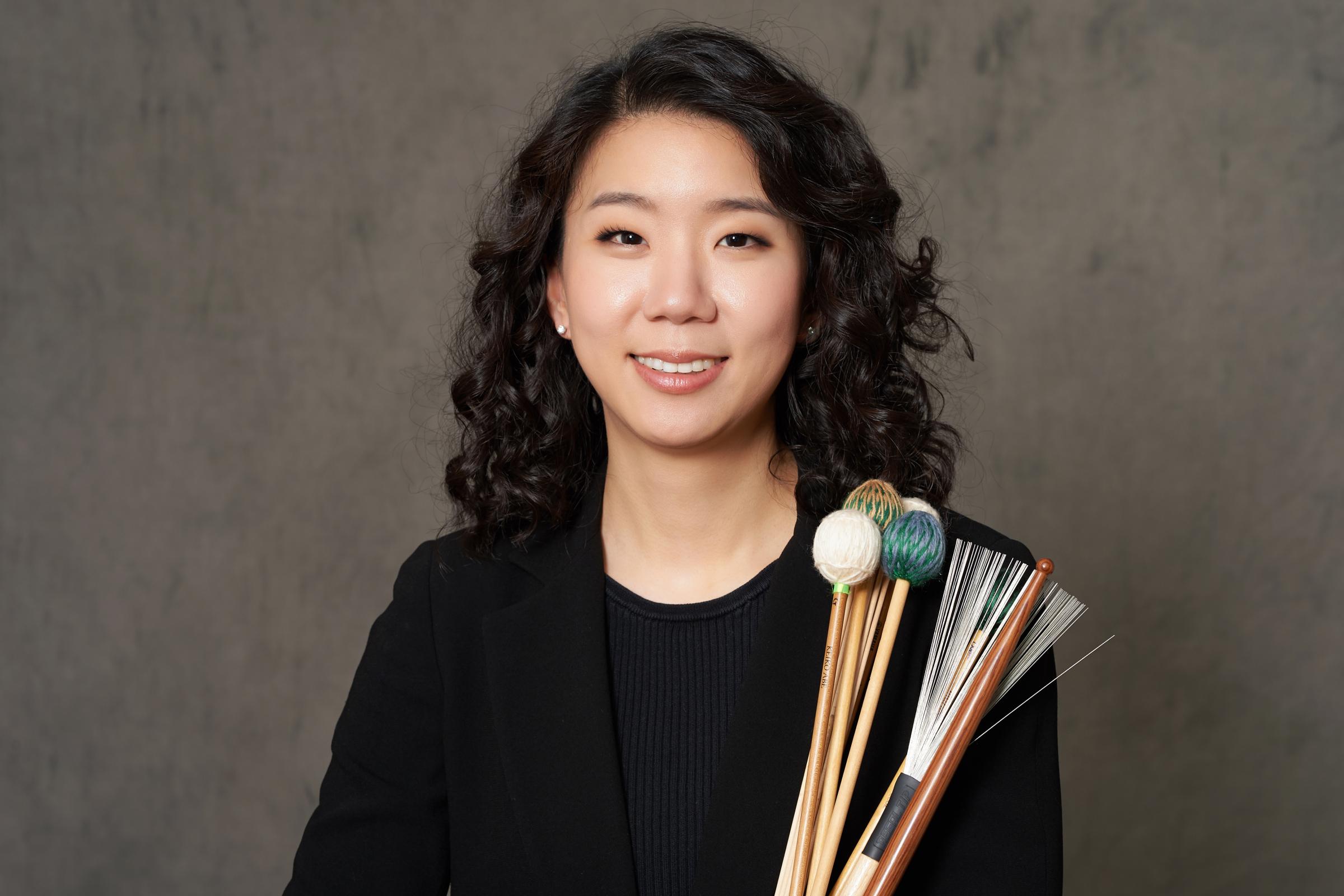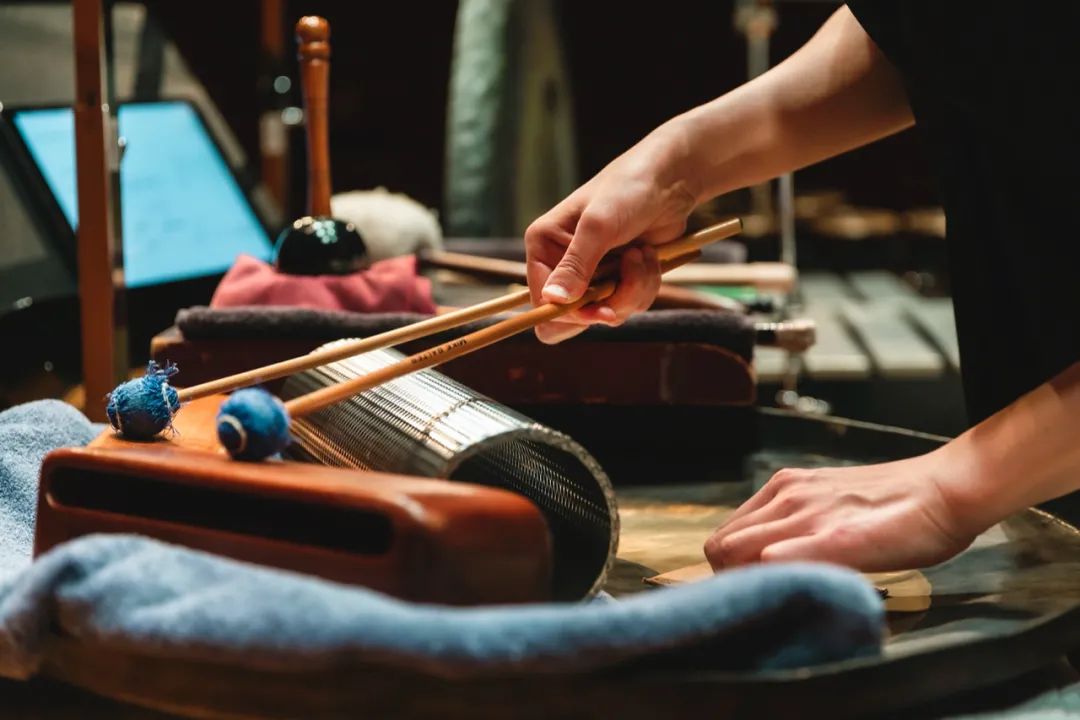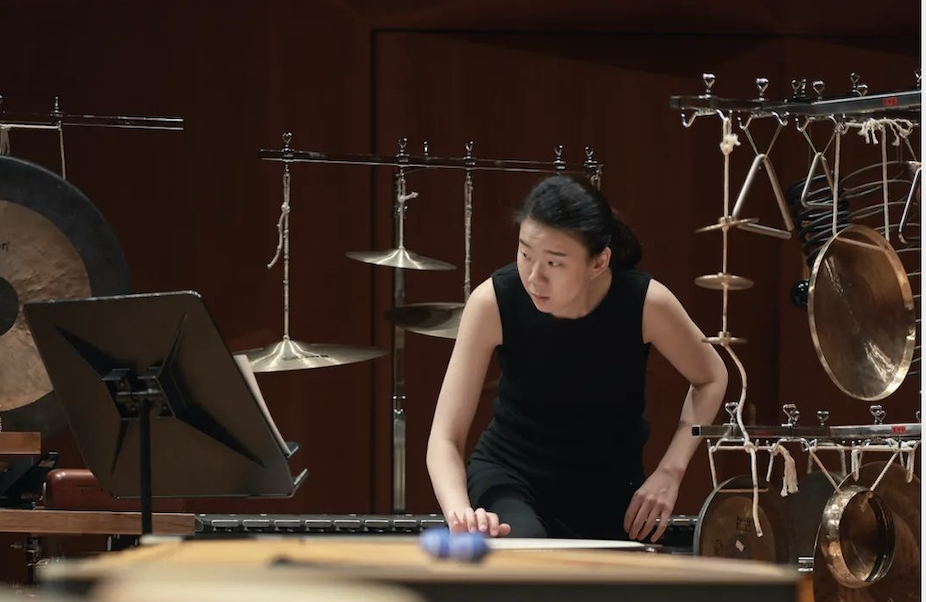
Percussion faculty June Moon Kyung Hahn started playing percussion when she was 4-and-a- half years old. Her mom saw a group of marimba players at a wedding and loved the music. She contacted the manager of the group and that’s how Hahn got her start in learning marimba. A few years later, her teacher advised her to learn the snare drum and timpani to enter college as a percussion major. She started to play snare drum at age 8 and timpani at age 10. Hahn went on to win her first international award at the Japan Marimba Competition in 1998. Born in California, she studied in Seoul, New York, and Paris for her music education. Hahn obtained a bachelor's and a master's degree from The Juilliard School, and is now teaching percussion at the branch campus in Tianjin. Hahn shared her experiences on learning percussion, life after Juilliard, and her approach to teaching at Tianjin Juilliard.
What is the most profound influence that Juilliard has had on you?
I learned to live like a professional musician, musically, mentally, and physically. My schedule was packed with classes, rehearsals, and concerts. Every moment was so precious and meaningful to me that I wanted to do everything well. I was trained to be organized and stay on my schedule. In a group, percussionists have to set up before the rehearsals start. We have to be there physically to set up an hour or two before other musicians arrive, at times we even have to be there a day prior to the rehearsal. Sometimes, it can be challenging to organize everything beforehand, but there is extra pleasure in getting to work with the stage crew and staff.
What excites you about The Tianjin Juilliard School?
It has always been a dream to work in Asia especially after a tour of China with a brass quintet from the Oberlin Conservatory a few years ago. I was blown away by how eager students were to learn and how well classical music seemed to be supported in this part of the world. I am excited to continue being a part of Juilliard and their development of new chamber music and orchestral programs in China.
What’s your teaching approach on the graduate level?
Undergraduate percussion majors usually explore and experience all different types and genres of percussion instruments. At Tianjin Juilliard’s graduate program, it is to find the students’ specialties and build their capabilities as professional performers. I focus on what they need individually and how I can best support their learning needs.
What are the major challenges during the learning process since there are so many different types of percussion?
They are very different from each other! There was definitely pressure for me to be good at everything. However, I found my specialty and built my reputation over time. The most challenging part of performing is that all percussion instruments resonate differently. For instance, forte on a bass drum and forte on a sandpaper block are different. If you check the decibel of forte on those two instruments, the bass drum will be much louder. Moreover, a sandpaper block sounds very short, but bass drum can ring for minutes. If it is written for a half note, I would have to play differently on those two instruments.

What advice would you offer to students interested in pursuing percussion as a professional career?
One of the most important skills for percussionists, is the extent to which they listen. From my experience, people who listen to others’ and also their own playing, make better musicians and it is more noticeable for percussionists because they always need to match with other instruments while they play different types of percussion instruments with different timbres. Better listeners make better ensemble with other musicians and even with oneself.
Do you find it challenging to find balance between teaching and performing?
I do not particularly find the balance to be difficult.
Any memorable contemporary works that you have performed recently?
I started to play contemporary works as a 5th grader in elementary school. The most impressive one for me was “Self in Mind IV for solo percussion” by Jaehyuck Choi. I commissioned the piece and gave its world premiere at Seoul Arts Center for my recital on January 2, 2020. Jaehyuck is a Juilliard alum as well, and the 1st prize winner of Concours de Geneve 2017. I was extremely excited by his work and very inspired during the reading session and rehearsals.
Have you tried to integrate traditional Korean musical instruments with western classical music?
I learned to play the traditional Korean percussion instrument a while ago, and I have performed with Korean instrument players. Traditional music and western classical music are very different, but that division has collapsed since the 20th century, and now these percussion instruments are frequently used in western classical music. There is and will be a sharp distinction between traditional and western percussion, but I try to do as much as composers ask me to do because I strongly believe that what composers create will become a part of music history.
During this pandemic, how do you stay motivated and inspired?
The fact that I could watch and listen to music from musicians on the other side of the world was such a big motivation for me. Although I did not have any live concerts for a few months, I had an online ‘live’ recital in April and my friends from the U.S. and Europe could watch it. Now, there are so many good online concerts that I don’t have to travel to watch. Although it’s hard to meet audiences in-person now, ironically, I feel more personally connected to them as a performer.
How is life in Tianjin?
My life in Tianjin has been wonderful with help from many people including my colleagues as well as random, kind strangers from daily life. It can be challenging to live in China if you don’t speak Chinese, but surprisingly everyone I met in Tianjin was so patient and kind in communicating with me. For example, at a restaurant, the waitress indicated that the soup was very hot through body language, and at a fast food place, a cashier paid attention in making sure I was getting the right food.
